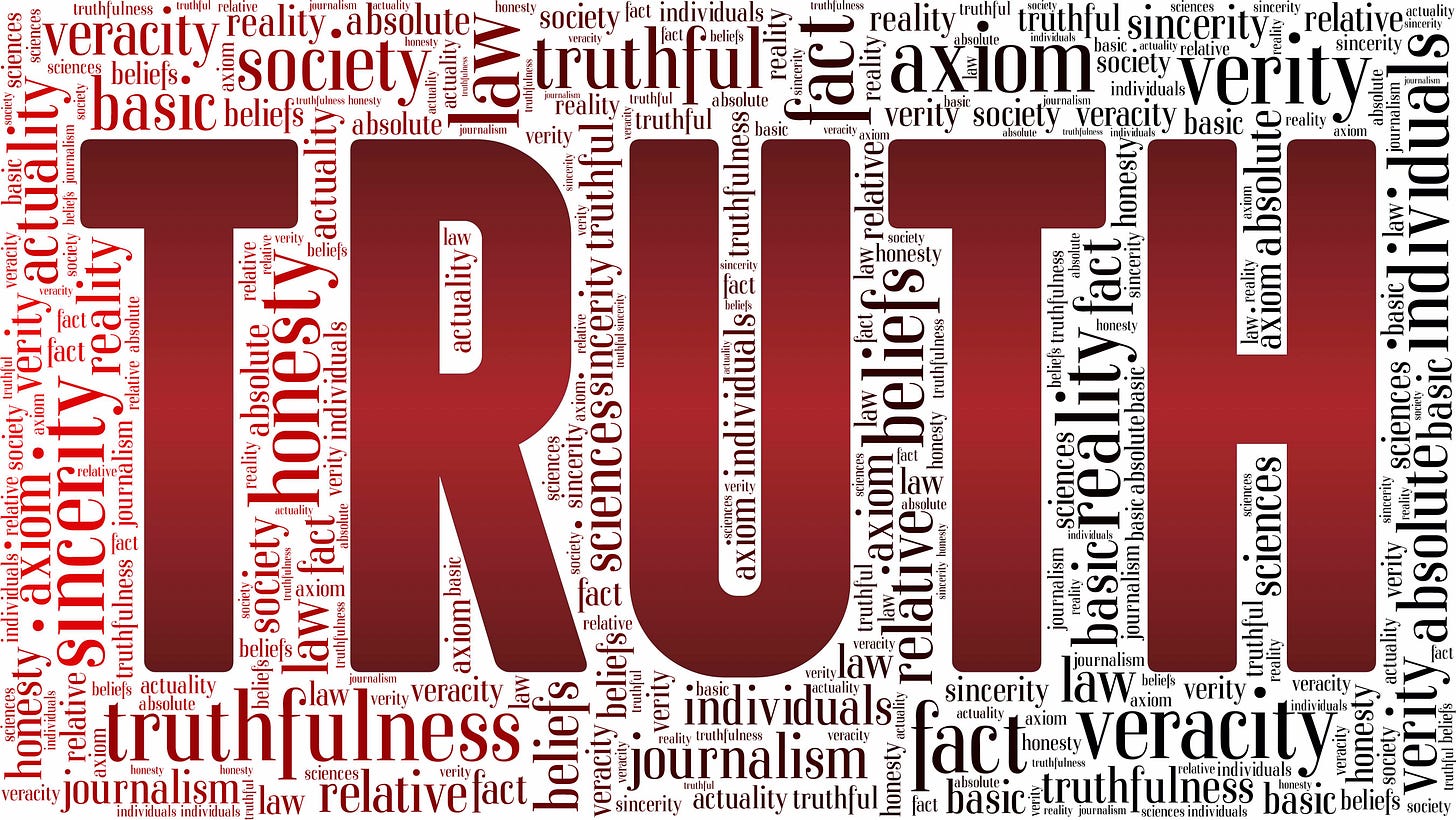E-Pluribus | July 7, 2021
Truth and truthfulness, more on anti-CRT legislation, and the hubris of Big Tech and Big Finance.
A round up of the latest and best writing and musings on the rise of illiberalism in the public discourse:
Richard V. Reeves: Lies and honest mistakes
In an era when charges of “fake news” and “misinformation” fly in every direction, Richard Reeves points to a lack of virtue as the root issue. Reeves does not minimize the value of truth itself, but argues that the character and motivation of individuals engaged in the marketplace of ideas is vital in maintaining a healthy, functional society.
Truth is empirical, but truthfulness is ethical. Truth is the end product; truthfulness a vital element in its production. The epistemological crisis has been blamed on populist politicians, and on technological platforms, and on profit-seeking celebrity trolls. These are all important. But the real problem is a loss of virtue, specifically the virtue of truthfulness. The epistemic crisis is an ethical crisis; and will require ethical solutions.
Our patron saint in this effort could be Nathanael, who appears in the Gospel of John, and has a good claim to be the patron saint of truthfulness. When told about Jesus, he scoffed: ‘Can anything good come out of Nazareth?’ But Christ, knowing he had said this, exclaimed: ‘Behold, an Israelite indeed, in whom is no deceit!’ Christ was clearly not applauding Nathanael for the truth of his statement, but for his willingness to speak his mind – for his truthfulness.
Williams argued that truthfulness rests on two basic virtues: accuracy and sincerity. The virtue of accuracy requires that ‘you do the best you can to acquire true beliefs’. This doesn’t mean that we all need to try to become world experts in absolutely everything. There is, as Williams puts it, a necessary ‘epistemic division of labour’. We usually trust others to know how to ensure that our drinking water is safe or how to remove our appendix. The point is to do what we can, especially with regard to more important matters, within the limits of our knowledge and competence.
Read the whole thing.
Kmele Foster, David French, Jason Stanley and Thomas Chatterton Williams: We Disagree on a Lot of Things. Except the Danger of Anti-Critical Race Theory Laws.
The fight over anti-Critical Race Theory legislation ramped up this week with a guest essay in the New York Times by a disparate quarter of writers concerned with education and the contentious CRT framework. While acknowledging the “high degree of lawful control” states exercise over curriculum in public schools, the four argue that “broad, vague” bans are antithetical to an open learning environment and will generate confusion and unintended consequences far beyond the current debate.
[…] We, the authors of this essay, have wide ideological divergences on the explicit targets of this [“anti-critical race theory”] legislation. Some of us are deeply influenced by the academic discipline of critical race theory and its critique of racist structures and admire the 1619 Project. Some of us are skeptical of structural racist explanations and racial identity itself and disagree with the mission and methodology of the 1619 Project. We span the ideological spectrum: a progressive, a moderate, a libertarian and a conservative.
It is because of these differences that we here join, as we are united in one overarching concern: the danger posed by these laws to liberal education.
Because these laws often aim to protect the feelings of hypothetical children, they are dangerously imprecise. State governments exercise a high degree of lawful control over K-12 curriculum. But broad, vague laws violate due process and fundamental fairness because they don’t give the teachers fair warning of what’s prohibited. For example, the Tennessee statute prohibits a public school from including in a course of instruction any “concept” that promotes “division between, or resentment of” a “creed.” Would teachers be violating the law if they express the opinion that the creeds of Stalinism or Nazism were evil?
Other laws appear to potentially ban even expression as benign as support for affirmative action, but it’s far from clear. In fact, shortly after Texas passed its purported ban on critical race theory, the Texas Public Policy Foundation, a conservative think tank, published a list of words and concepts that help “identify critical race theory in the classroom.” The list included terms such as “social justice,” “colonialism” and “identity.” Applying the same standards to colleges or private institutions would be flatly unconstitutional.
These laws threaten the basic purpose of a historical education in a liberal democracy. But censorship is the wrong approach even to the concepts that are the intended targets of these laws.
Though some of us share the antipathy of the legislation’s authors toward some of these targets and object to overreaches that leave many parents understandably anxious about the stewardship of their children’s education, we all reject the means by which these measures encode that antipathy into legislation.
Read it all here at the New York Times.
Bret Swanson: Big Tech and Big Finance Breed Hubris
Big Tech’s outsized power over the modern day mechanics of public speech continues to raise concerns over free expression. Bret Swanson, currently a visiting fellow at the American Enterprise Institute, writes that, along with Big Finance, Big Tech engages in quasi-governmental censorship by following partisan media narratives for political reasons instead of allowing competing and conflicting ideas to fight it out on a level playing field.
China’s stalling and lying about Covid’s origins weren’t surprising. On the other hand, the behavior of U.S. officials and scientists was startling. They dissembled over their intimate knowledge of gain-of-function research at the Wuhan Institute of Virology and their early suspicions the virus was “engineered.” But who expects politicians and bureaucrats to be honest and competent? That’s what an open society is for. Truth and accountability are the responsibility of a free press—and a free internet.
What happens when the press and the internet aren’t so free? Over the past year, YouTube, Twitter and Facebook joined with a partisan press to block and throttle discussion across a range of Covid-19 topics. They discouraged and erased talk of the Wuhan lab-leak hypothesis, cheap and safe generic treatments such as ivermectin, Sweden’s heterodox decision to stay mostly open, and the inefficacy (and cruelty) of school closures.
Social media even blocked access to three eminent epidemiologists—professors at Stanford, Harvard and Oxford Universities—who advocated “focused protection” of the vulnerable, which could have avoided the devastating economic and social costs of the overly broad lockdowns. A new National Bureau of Economic Research paper suggests lockdowns were a net negative for public health. In too many cases, independent-minded scientists and data analysts were right, while Big Public Health and Big Tech were wrong.
Read the whole thing.
Around Twitter
Heterodox Academy highlights an Anne Applebaum piece at The Atlantic:
Conor Friedersdorf on Martin Luther King’s most well known aphorism that has fallen out of fashion in recent years:
A thread from Fred Bauer on social science standards for Oregon schools:

















